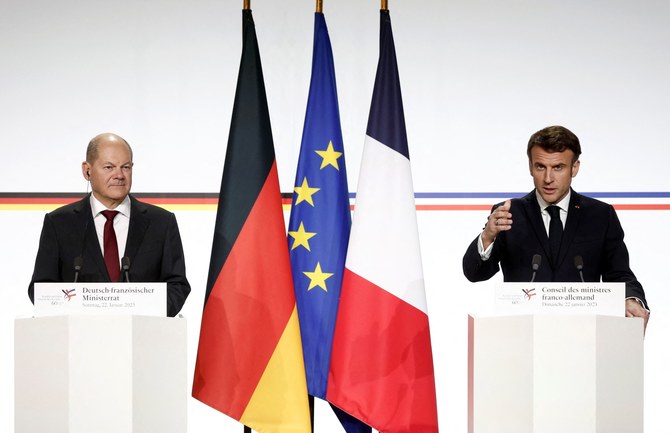
For much of the post-war era, Germany and France were the dynamos of ever-closer European integration. Yet, Italy, under Prime Minister Mario Draghi, wants to shake up that cozy twosome and try to tilt the balance of power in Europe in the post-Merkel era to come.
On Friday, Italy and France signed the so-called Quirinale treaty of bilateral cooperation. To some, its promise bears similarities to the Elysee Treaty between France and Germany, created to rebuild their relationship after the Second World War.
Under the new pact, France and Italy have committed to greater coordination in security, defense, migration, strategic sectors (including 5G and AI) and macroeconomics. Moreover, in the area of European affairs, Rome and Paris will seek greater coordination before EU leadership summits to try to agree common positions, a process that already takes place between France and Germany.
The bilateral cooperation agreement was first mooted in 2018 under Italy’s then-prime minister Paolo Gentiloni, but relations between Rome and Paris deteriorated after he was succeeded in power that year by the populist government of The League and the Five Star Movement. Bilateral tensions peaked early in 2019 when France briefly recalled its ambassador over a row involving immigration.
Under Draghi, ties between the two countries have been fully restored and he and Macron are increasingly keen to act in tandem to shape European and broader foreign policy after years of significant quarrels between the two countries Only last week, the two leaders met in Paris last week, focusing on the political transition in Libya, an issue of key importance for both sides.
The reason why the new deal could be so important is that it comes as a potentially historic power shift may be underway in the continent. Angela Merkel has long been the most important political leader in continental Europe, having been in office since 2005.
She already long ago broke the previous record of Europe’s longest-serving female leader, exceeding Margaret Thatcher’s 11 years in office. Now into overtime at the end of her fourth term, she only sits behind Otto von Bismarck in length of tenure. Bismarck served for almost two decades from 1871–90, during a period in which he was a dominant force in European affairs, having previously helped drive the unification of Germany.
While the Franco-German alliance has long been the motor of European integration, cooperation between the two powers ebbs and flows depending upon the personalities of the office holders in Berlin and Paris. Merkel and Macron, despite not seeing eye to eye on every issue, have generally been a formidable duo, plotting the future of Europe and its wider role in the world.
Key achievements include persuading squabbling fellow EU members last year to agree to give the bloc, for the first time in its history, debt-raising powers to finance a €750 billion ($1 trillion) post-pandemic recovery plan. However, the past is not always a guide to the future, and the relationship between Macron and the incoming chancellor, Olaf Scholz, may be cooler.
Both Macron and Draghi believe that Europe is now in a critical period in its history. Despite progress made on their respective EU agendas, key challenges include growing Euroskepticism across the continent. The last half decade has seen not only the Brexit referendum, but also a growing backlash against Brussels by openly skeptical governments, including Poland and Hungary.
This unfolding situation also comes in a context where there still remains a multitude of views across the continent on the future of the Brussels-based club. Friday’s bilateral cooperation agreement therefore represents an opportunity for Paris and Rome to increasingly shape this debate.
Scenarios in the next decade range from the EU retreating, post-Brexit, to no more than the current economic Single Market which seeks to guarantee freedom of movement of goods, capital, services and people. At the other end of the spectrum, however, is a quite different future for the continent, where the non-UK 27 member states decide to do much more together, potentially reigniting European integration, which is favored by Macron if he can win a second presidential term next year.
While the direction of the EU is still so uncertain, what is clear is that Draghi wants Rome to have a larger bearing on events, hence Friday’s agreement. For he knows, like Macron and indeed Scholz, that the next few years could have an outsized impact in defining the economic and political character of the bloc — not just in the second half of the 2020s, but potentially well beyond.












